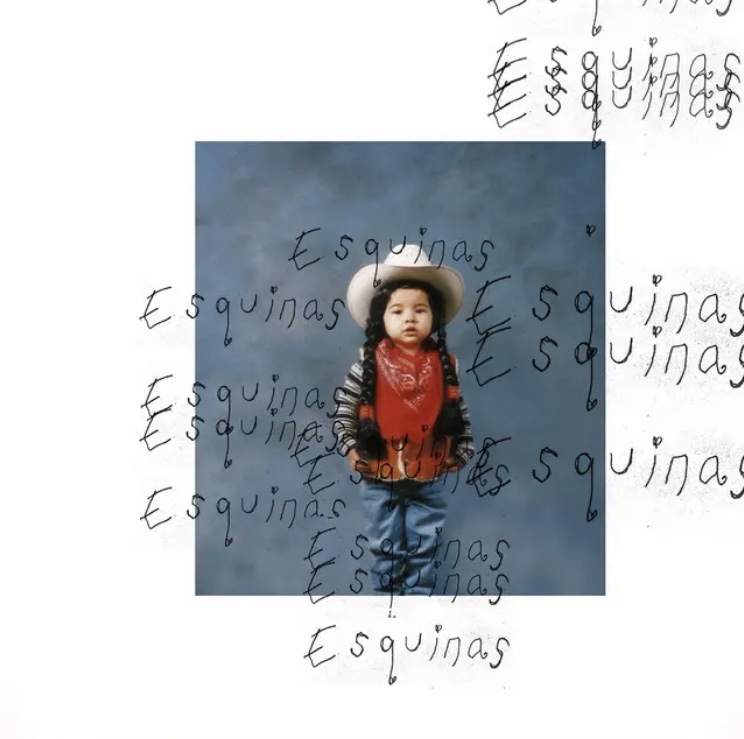“Ni de aquí, ni de allá.”
It is phrase every Mexican American is all too familiar with. It means to be “neither from here, nor from there.” But it holds nothing against global music sensation Becky G whose third studio album, “ESQUINAS,” or “Corners,” represents the corner where the two roads of her Mexican and American identities meet. It is an endearing homage to the past, present, and future of regional Mexican music.
Born and raised in Los Angeles, Becky G has lived through what she refers to as ‘the 200 percent experience.’ Rather than being half Mexican and half American, she’s committed to being 100 percent of both.
She began her career singing in English, and in an episode of the “Jay Shetty Podcast,” she likened those early stages of her career to taking a nap on a plane–it seemed necessary at the time, but she couldn’t wait to go home and sleep in her real bed. Her shift to the Latin market marks her journey back home. Although it is her third Spanish album, “ESQUINAS” is the project that shows she has finally completed that journey.
She kicks off the album with “2NDO CHANCE,” featuring contemporary acoustic legend Ivan Cornejo. The song’s dreamy acoustics, echoing vocals and nostalgic synths are reminiscent of 90s Tejano classics. She told the Associated Press the song was inspired by “old AM radio songs her grandmother listened to while cleaning her house.” But the greater nostalgia is experienced in the music video.

Courtesy of: SME (on behalf of Kemosabe Records/RCA Records)
The video takes place in a Mexican household perfectly represented by busy family occupation, wall-mounted A.C. units, Catholic imagery and an altar with pictures of fallen artists like Vicente Fernandez and Selena. A scene in which Becky G is seen getting ready with her friends in a crowded bathroom with a sink too small to hold hair products, cables or hair straighteners beautifully depicts feminine relationships and the values of family and community which are present throughout the rest of the video and are so often related to Mexican culture.
The sense of community is enhanced by the collaborations which make up over half the album’s songs. For Becky G, the collaborations are particularly special, as she shared on Instagram that each of the eight featured artists had gone through their own version of the 200 percent experience.
The third track, “BIEN CANIJO,” is Becky G’s first solo track on the album, and it makes a powerful first impression. The song’s incredible vocal performance introduces a side of the artist that was previously unseen. With purely acoustic instrumentation, a heartbreaking narrative and raw, emotional vocals, “BIEN CANIJO” checks all the boxes of a Mexican classic.
Like “2NDO CHANCE” and other tracks such as “POR EL CONTRARIO,” the depictions of heartbreak in “BIEN CANIJO” abide by a pattern: being passed along as a boyfriend moves onto another woman. Piled along with the struggles and confusion of having a mixed ethnicity, this could lead to lowered confidence in the self. But through the song’s final line, “superarme va a estar bien canijo,” which roughly translates to “it’ll be difficult to do better than me,” Becky G embraces her own worth and ends the song on a confident note.
The album’s seventh track, “CUIDADITO” furthers the album’s theme of empowerment in a vastly different way. The collaboration, featuring fellow California native and international sensation Chiquis, is a brilliantly entertaining tale of female rage. After seeing her boyfriend conversing with another woman, the lyrics take an amusingly exaggerated turn with Becky G and Chiquis threatening to key his car, break its windows, let the air out of the tires and call his mother to “clean up the mess she birthed.”
Despite the song’s playful tone, it joins the ranks of upbeat yet resentful regional Mexican anthems, such as Selena’s, “Cobarde,” or Ana Barbara’s, “Loca.” The two women’s collaboration acts simultaneously as a fun party anthem and an empowering encapsulation of female rage.
Of course, the album would not pay proper homage to Becky G’s Mexican heritage without including covers of some Mexican regional classics. Three covers of classic mariachi pieces are present in the album: “Un Puño De Tierra,” “Por Un Amor” and “Cruz De Olvido.” The songs smoothly carry along the themes Becky G lays out in the album, with the lyrics of “Un Puño De Tierra” expressing themes of liberty and gratitude for the land one stands on–a metaphor for the artist’s cultural gratitude, and “Por Un Amor” and “Cruz De Olvido” both being heartbreak anthems.
With the two final tracks, “CRUZ DE OLVIDO,” and “QUERIDO ABUELO,” Becky G pays her final dedication to her most immediate community: her family. Her cover of “Cruz de Olvido” was the first mariachi song she learned to sing, as it was the song her grandfather dedicated to her grandmother when he initially immigrated to the United States. The song’s lyrics express the heartbreak of having to leave a loved one in search for a better life.
With the final song, “QUERIDO ABUELO,” which means “Dear Grandfather,” she pays her gratitude to her grandfather and his influence in her life. Backed solely by two acoustic rhythms, the song is a simple yet emotional and endearing tribute to her late grandfather.
As grateful as she may be for the fans who have made her one of the most prominent women in the Latin music industry, the lyrics, “I was a millionaire just by having you,” in “QUERIDO ABUELO,” are a reminder of the importance of cherishing loved ones and their heritage.
“[Us mixed ethnicity kids] we’re not just walking into a room with our own sacrifices but the sacrifices of those before,” Becky G told Jay Shetty. Her embracement of her culture is a duty she has to her grandparents who sacrificed everything for her to be raised in the United States.
The album is one of many recent projects revolutionizing the genre of regional Mexican music. “ESQUINAS” showcases some of Becky G’s most emotionally raw and personal songs and is her most impressive vocal performance to date.
The album’s collection of some of the most prevalent, young contemporary Mexican musicians makes it a pinnacle of modern regional Mexican music; paying a beautiful tribute to regional Mexican artists of the past, it will undoubtedly make its mark as a timeless symbol of what has become an ever-changing diverse and global Mexican culture.









